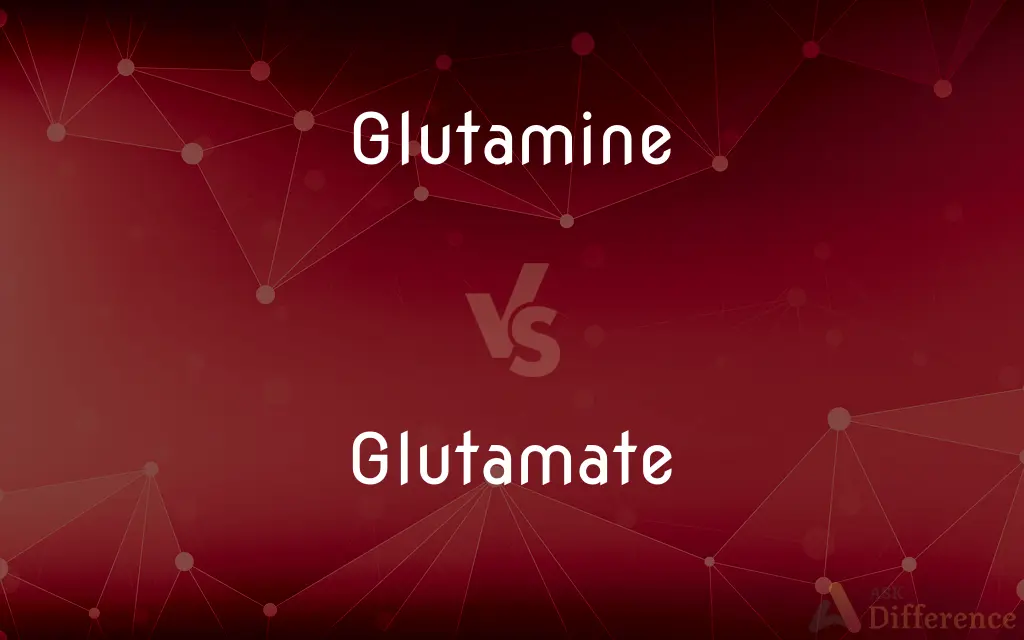Glutamine vs. Glutamate — What's the Difference?

Difference Between Glutamine and Glutamate
ADVERTISEMENT
Compare with Definitions
Glutamine
Glutamine (symbol Gln or Q) is an α-amino acid that is used in the biosynthesis of proteins. Its side chain is similar to that of glutamic acid, except the carboxylic acid group is replaced by an amide.
Glutamate
A salt or ester of glutamic acid, especially one that functions as a neurotransmitter that excites cells of the central nervous system.
Glutamine
A nonessential amino acid, C5H10N2O3, occurring widely in plant and animal tissue and proteins and produced commercially for use in medicine and biochemical research.
Glutamate
(chemistry) Any salt or ester of glutamic acid.
Glutamine
(amino acid) A nonessential amino acid C5H10N2O3 found in most animal and plant proteins.
ADVERTISEMENT
Glutamate
(neuroscience) The anion of glutamic acid in its role as a neurotransmitter.
Glutamine
A crystalline amino acid occurring in proteins; important in protein metabolism
Glutamate
A salt or ester of glutamic acid
Share Your Discovery

Previous Comparison
Unarguably vs. Inarguably
Next Comparison
Brilliant vs. Wonderful















































